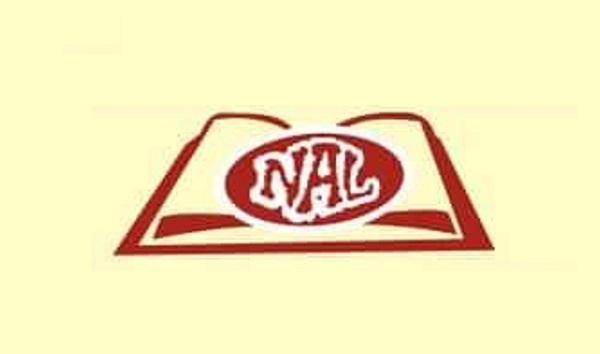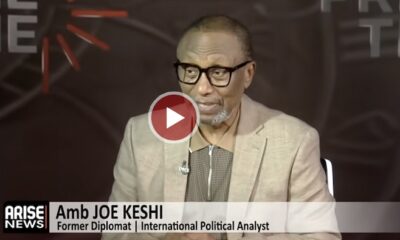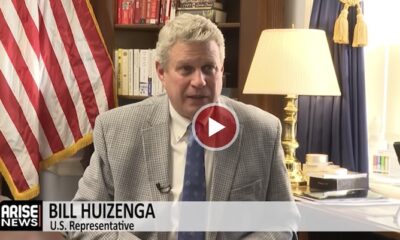Politics
Nigerian Academy of Letters Criticizes Education Policy Shift

The Nigerian Academy of Letters (NAL) has strongly condemned the recent decision by the 69th National Council on Education (NCE) to cancel the National Language Policy (NLP 2022). This policy shift designates English as the sole medium of instruction across all educational levels in Nigeria. NAL describes the move as a significant setback with serious implications for the country’s educational and cultural development.
In a press statement released on November 3, 2023, signed by NAL President Prof. Andrew Haruna, the Academy expressed deep concern over the reversal of the language policy. This announcement emerged during the NCE meeting held in Akure from November 3 to 6. The Academy criticized the NCE’s decision as dismissive of extensive research, expert consensus, and public advocacy that supports mother-tongue-based multilingual education.
According to NAL, the National Language Policy (2022) was developed through over 40 years of progressive policy decisions and thorough nationwide consultations. The aim was to ensure that Nigerian children receive their first six years of education in their mother tongue or the language of their immediate environment.
The Academy highlighted that global studies, supported by UNESCO guidelines, consistently demonstrate that mother-tongue instruction enhances literacy, cognitive development, and academic outcomes while fostering cultural identity and social inclusion. NAL referenced the landmark Ife Six-Year Primary Education Study, led by the late Professor Babs Fafunwa, which has influenced educational initiatives in other countries, including Bolivia and Ghana.
It is particularly ironic, NAL noted, that while other African nations are adopting Nigeria’s previous educational model, Nigeria is retreating from a policy that has yet to be implemented effectively. The Academy indicated that the Minister of Education may be unaware that an approved implementation framework for the NLP 2022 is already in place.
The cancellation of the National Language Policy raises multiple concerns. NAL warns it may lead to the erosion of linguistic diversity, weaken national cohesion, and contravene constitutional provisions regarding education. The Academy cautioned that reverting to English-only instruction equates to restoring colonial linguistic domination and cultural alienation.
“A country that deprives its young ones of education in their mother tongue has denied them access to the deepest and most authentic sources of knowledge,” the statement read. “To sever learners from the mother tongue is to impoverish their intellectual and imaginative potential.”
NAL emphasized that the issue lies not in the existence of the National Language Policy but in its lack of implementation. They cautioned that removing Nigerian languages from the core curriculum could undermine children’s intellectual foundations, contradict global best practices, and jeopardize the nation’s long-term development.
The Academy’s strong stance reflects a broader concern about the future of education in Nigeria and the importance of preserving linguistic diversity in a multicultural society. As discussions continue, the implications of this policy shift will be closely monitored by educators, policymakers, and communities across the nation.
-

 Entertainment3 months ago
Entertainment3 months agoAnn Ming Reflects on ITV’s ‘I Fought the Law’ Drama
-

 Entertainment4 months ago
Entertainment4 months agoKate Garraway Sells £2 Million Home Amid Financial Struggles
-

 Health2 months ago
Health2 months agoKatie Price Faces New Health Concerns After Cancer Symptoms Resurface
-

 Entertainment2 months ago
Entertainment2 months agoCoronation Street’s Carl Webster Faces Trouble with New Affairs
-

 Entertainment2 months ago
Entertainment2 months agoWhere is Tinder Swindler Simon Leviev? Latest Updates Revealed
-

 Entertainment4 months ago
Entertainment4 months agoKim Cattrall Posts Cryptic Message After HBO’s Sequel Cancellation
-

 Science4 weeks ago
Science4 weeks agoBrian Cox Addresses Claims of Alien Probe in 3I/ATLAS Discovery
-

 Entertainment3 months ago
Entertainment3 months agoMarkiplier Addresses AI Controversy During Livestream Response
-

 Entertainment2 months ago
Entertainment2 months agoOlivia Attwood Opens Up About Fallout with Former Best Friend
-

 Entertainment3 months ago
Entertainment3 months agoMasterChef Faces Turmoil as Tom Kerridge Withdraws from Hosting Role
-

 Entertainment4 months ago
Entertainment4 months agoSpeculation Surrounds Home and Away as Cast Departures Mount
-

 World2 months ago
World2 months agoCole Palmer’s Mysterious Message to Kobbie Mainoo Sparks Speculation





















